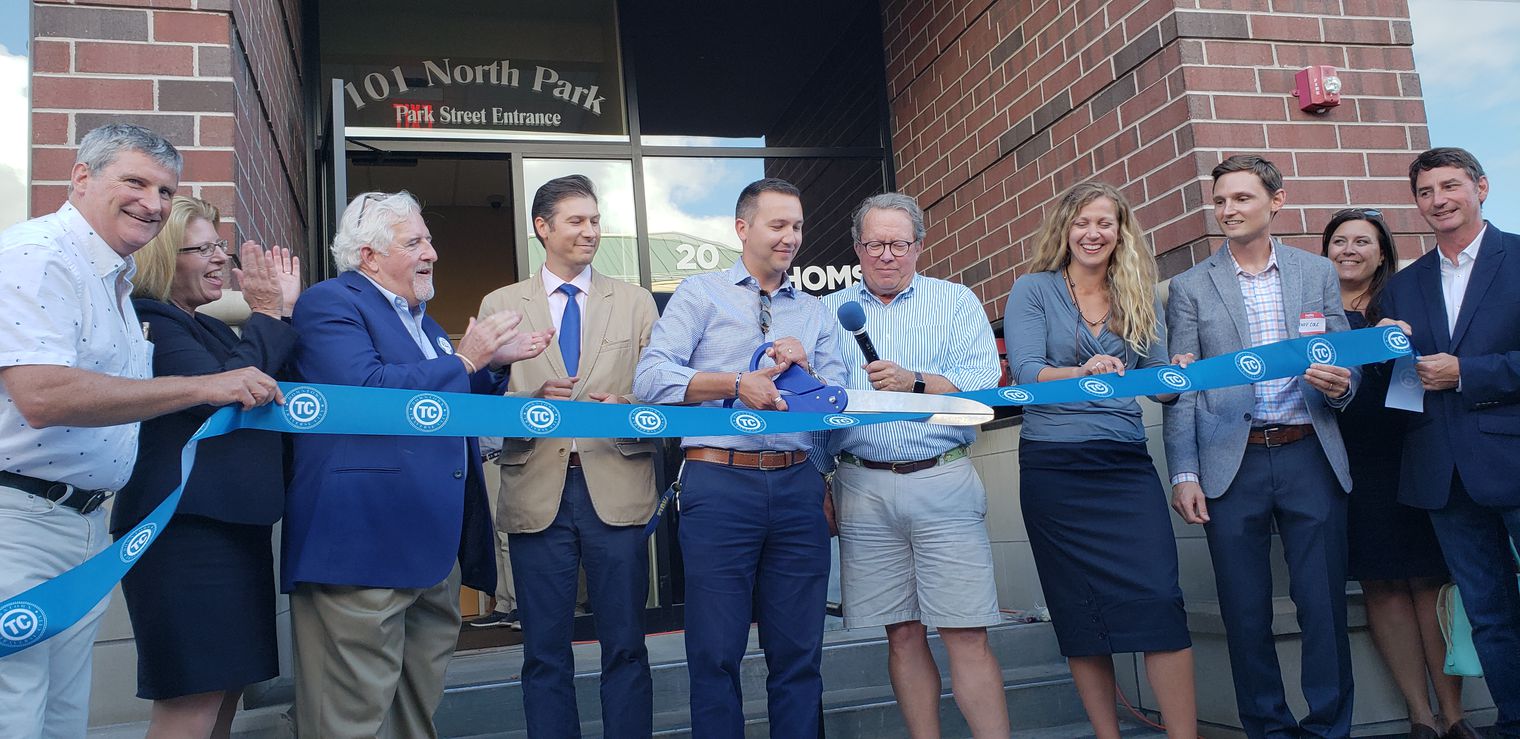Andy Cole, third from right, celebrating the opening of 20Fathoms. “There’s so much talent under the rocks in this community and nobody was trying to overturn the rocks and see what was there.”
Traverse City, Michigan, a coastal community of just over 15,000 people on the shores of Lake Michigan, isn’t most people’s idea of a tech hub. Andy Cole, co-founder and executive director of 20Fathoms, a local nonprofit tech business incubator, described his hometown as a well-kept secret, a remote community and popular summer travel destination on the tip of the pinkie of Michigan’s mitt.
“It’s a wonderful, beautiful place, but it’s not really on the way to anything,” Cole says.
Like many who grew up in this more rural corner of the country, Cole left after high school, and until recently, his career hadn’t brought him back. When he returned in 2016 after spending time in the Boston area, he wasn’t sure what he’d find in the way of opportunity. He didn’t expect to encounter a growing community of tech startups, including entrepreneurs, multiple drone companies, and a local meetup group, TCNewTech, that had more than 1,000 members.
The momentum and energy he saw inspired him to help launch 20Fathoms, inside a second-floor office on Front Street overlooking the bay, in July. Soon, this local tech hub will become part of a nationwide experiment in building the rural tech economy.
“There’s so much talent under the rocks in this community,” he says, “and nobody was trying to overturn the rocks and see what was there.”
The digital economy, and the promise of succeeding anywhere
20Fathoms is one of nine small-town tech centers across the nation chosen for the Rural Innovation Initiative, a project of the Center on Rural Innovation (CORI), founded by Matt Dunne, a former head of community affairs for Google, and funded with a seed grant from LinkedIn cofounder Reid Hofmann. During his time with Google, Dunne worked remotely from Vermont, and his new initiative embodies CORI’s belief that smart tech investment can not only showcase small towns with economic momentum, but help reverse the fortunes of rural America.
“We’re trying to take advantage of the long-time promise of the internet that it shouldn’t matter where you live, that you should be able to succeed in the digital economy from anywhere,” says Dunne.
The romantic vision of telecommuting and digital technology—log in and operate from anywhere—has ceded ground to the harsh reality that opportunity, funding, and jobs tend to concentrate in select superstar cities, draining talent and jobs from rural areas.


